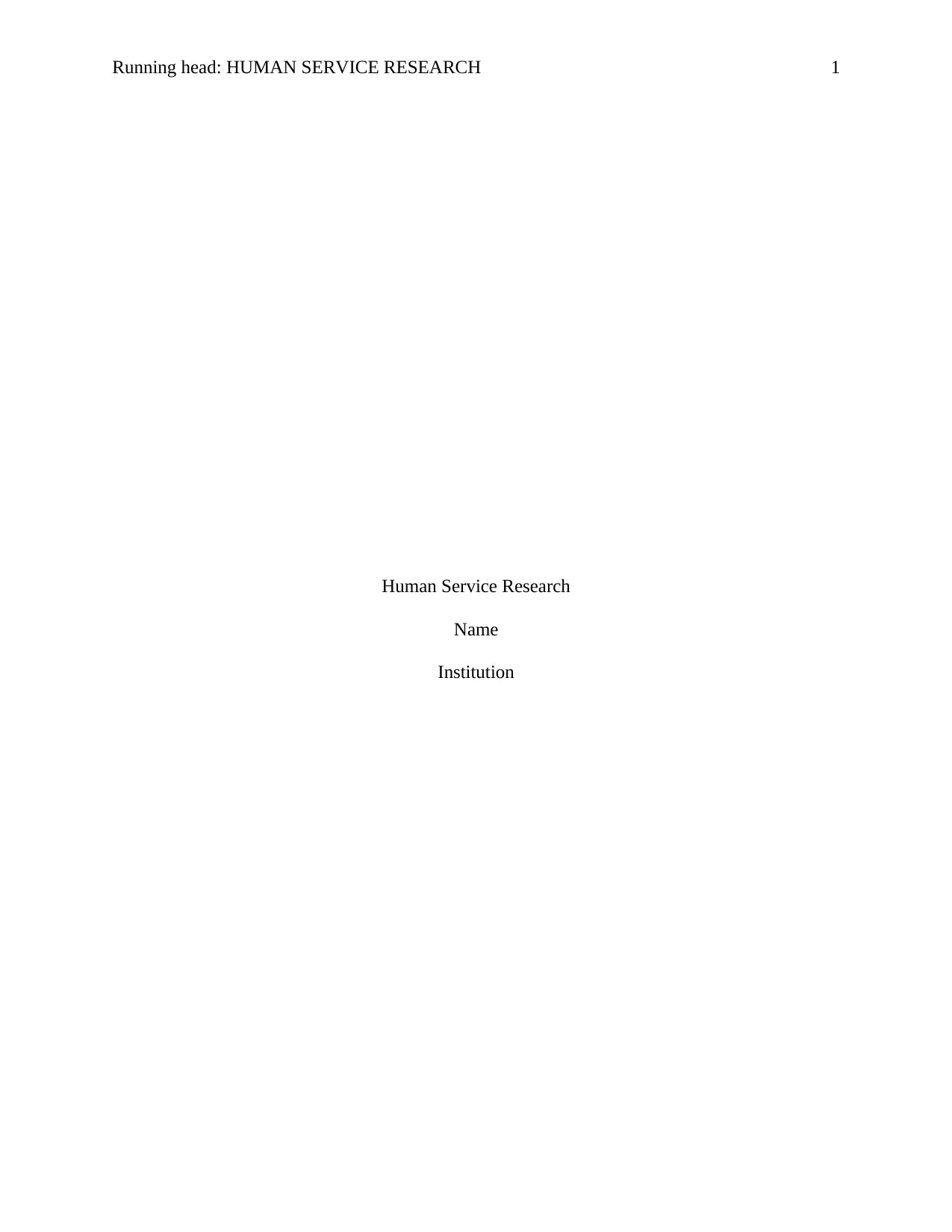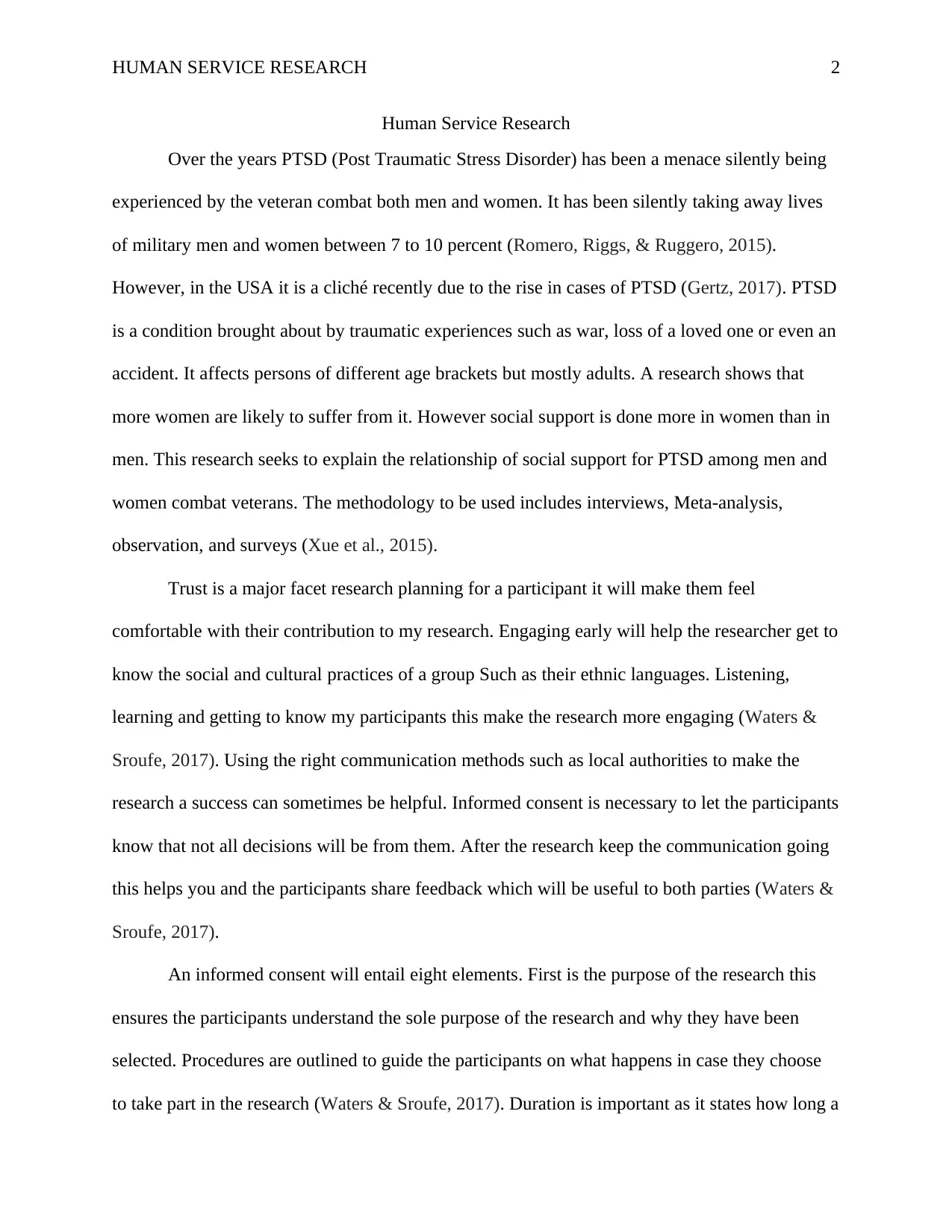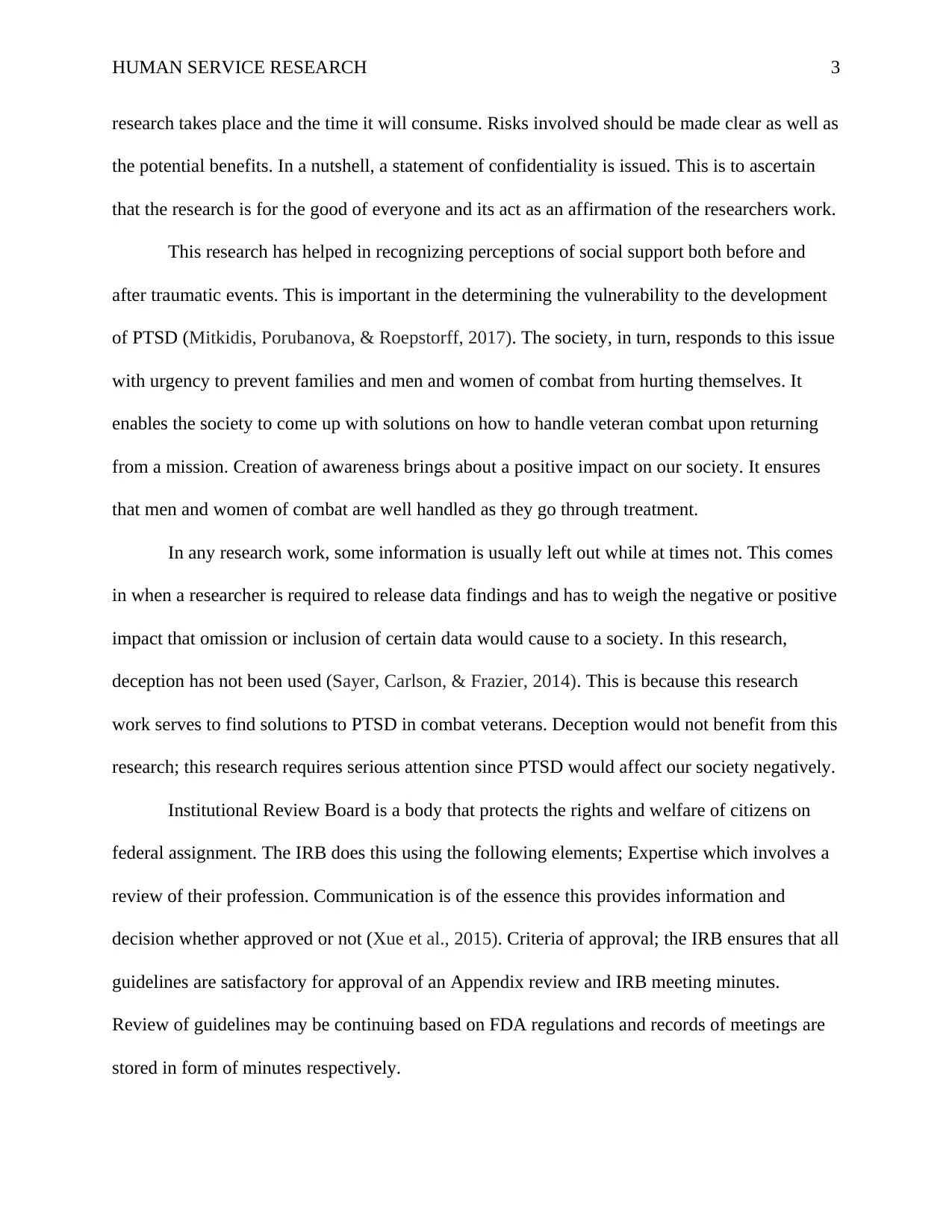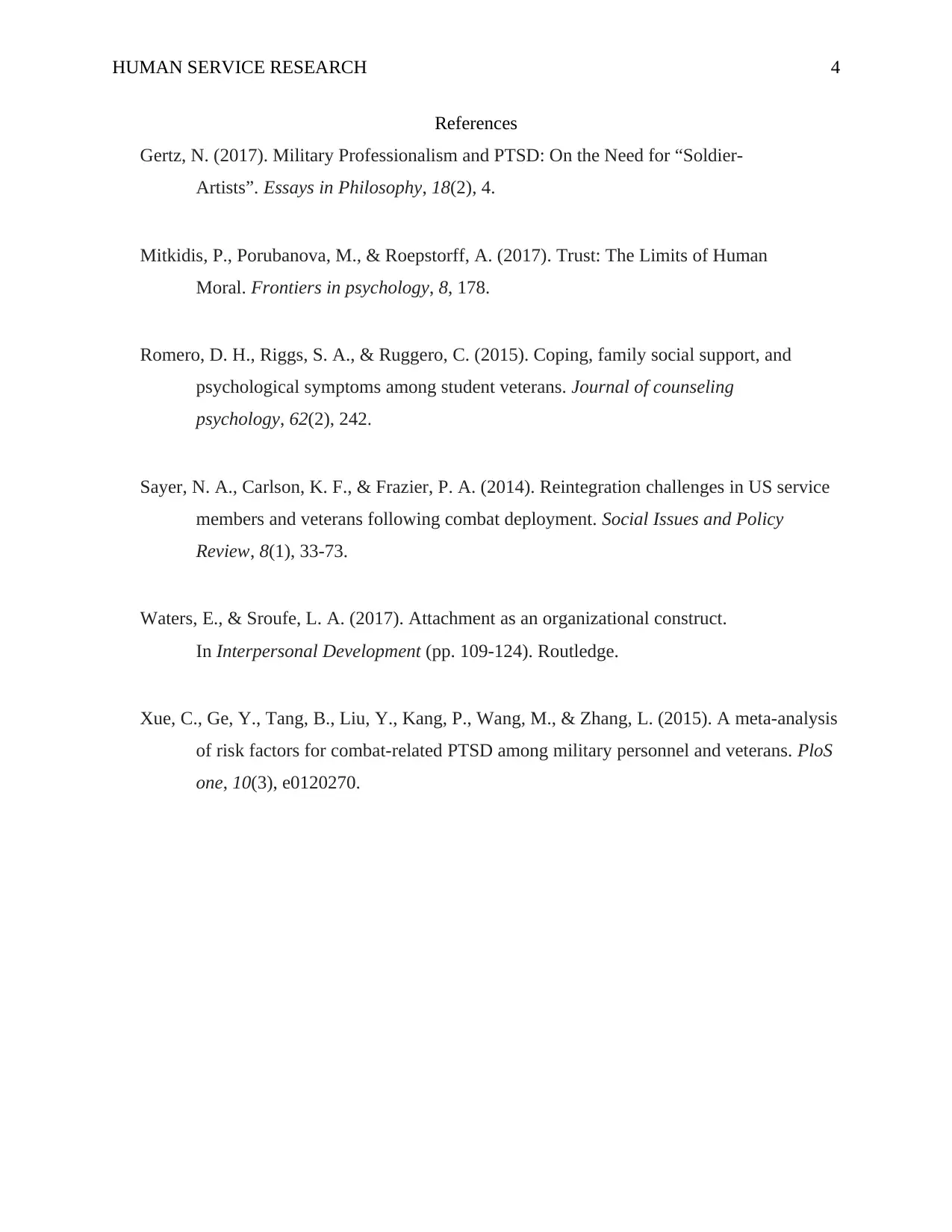A Study of Social Support for PTSD in Male and Female Combat Veterans
VerifiedAdded on 2023/06/10
|4
|1036
|96
Report
AI Summary
This research report investigates the relationship between social support and Post-Traumatic Stress Disorder (PTSD) in male and female combat veterans. It highlights the prevalence of PTSD among veterans and explores how social support mechanisms impact their mental health. The methodology includes interviews, meta-analysis, observation, and surveys. The research emphasizes the importance of trust, early engagement, and informed consent in conducting ethical research with this population. It also touches on the role of the Institutional Review Board (IRB) in protecting participants' rights and welfare. The findings underscore the need for societal awareness and support systems to aid veterans in their reintegration and treatment, ultimately aiming to reduce the negative impacts of PTSD on individuals, families, and the community. The study also stresses the ethical considerations involved in research, such as avoiding deception and ensuring data confidentiality.
1 out of 4











![[object Object]](/_next/static/media/star-bottom.7253800d.svg)